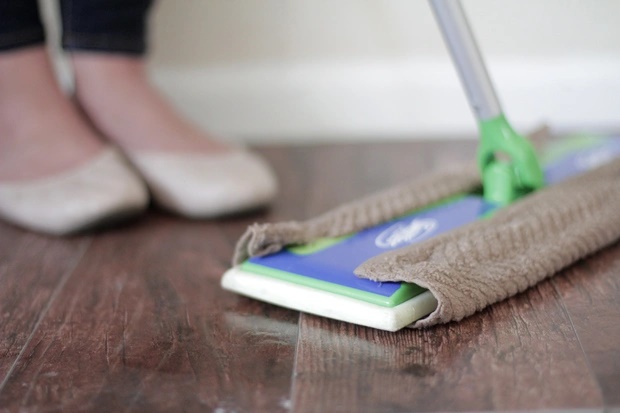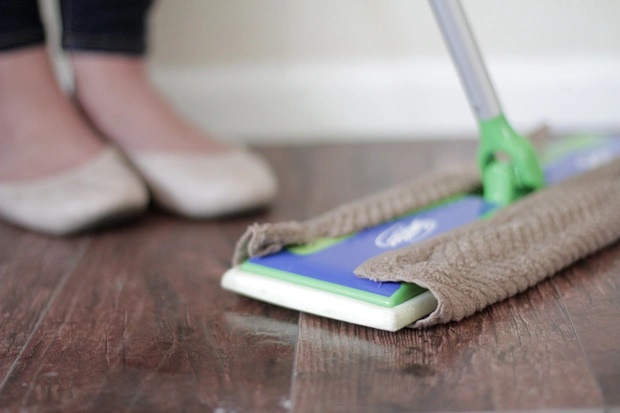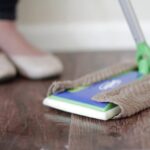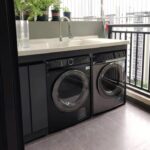1. Mopping the Floor
During humid weather, everything inside the house tends to get damp. Many people believe that mopping the floor and turning on a fan to dry it off is a way to improve the humidity levels in the house. However, this can actually make the situation worse, increasing the dampness.

Photo: Internet
During this period, it is best to prioritize drying the floor with a clean, dry cloth. If you don’t have access to air conditioning, a dehumidifier, or a heater, you can temporarily use a hairdryer to blow on the floor, which will help reduce the moisture. Additionally, you can try inexpensive moisture-absorbing methods such as using charcoal, lime, or old newspapers, and placing them under the bed or in the corners of the room.
2. Drying Clothes
Humid weather and drying clothes are a nightmare combination. Even if you do manage to dry your clothes, it takes a long time, and they may end up smelling musty. If possible, invest in a clothes dryer, take your laundry to a laundromat, or use a hairdryer to speed up the drying process. For children’s clothing and underwear, make sure to thoroughly dry them before use to maintain hygiene. It’s also a good idea to minimize washing during humid days and avoid using a fan to dry clothes, as this will only increase condensation.
3. Turning on the Fan

Photo: Internet
You might think that turning on a fan will blow away the moisture and make the house more comfortable. However, this action will only create more humid air. The cold air from the fan causes moisture to condense more, leading to increased water droplets, dampness, and mold. Also, avoid drying clothes indoors and using a fan to dry them. This will only make your clothes remain damp and your house smell musty.
4. Opening Doors and Windows
During humid weather, the outdoor humidity is usually higher than indoors. Opening doors and windows will allow more moist air to enter, making your home even damper. The optimal solution is to keep all doors and windows closed and use air conditioning and dehumidifiers, along with other moisture-reducing methods.
Especially after using the bathroom, make sure to close the door tightly and place a few newspapers next to the bath mat to absorb moisture and prevent it from spreading to other rooms.
However, if your home doesn’t have air conditioning or a dehumidifier, keeping the doors and windows closed won’t help much. In this case, open all the doors and windows wide, but only do so when the weather outside is dry and sunny.
5. Unplugging Electronic Devices and Appliances
Humid air can significantly impact the lifespan of electronic devices. During humid days, to ensure the longevity of your electronics, it’s best to keep them in standby mode and leave the plugs intact. Avoid repeatedly plugging and unplugging them, as this can cause the electrical outlet and plug to become damp, leading to malfunctions.
According to Vietnamese Women’s Newspaper







































